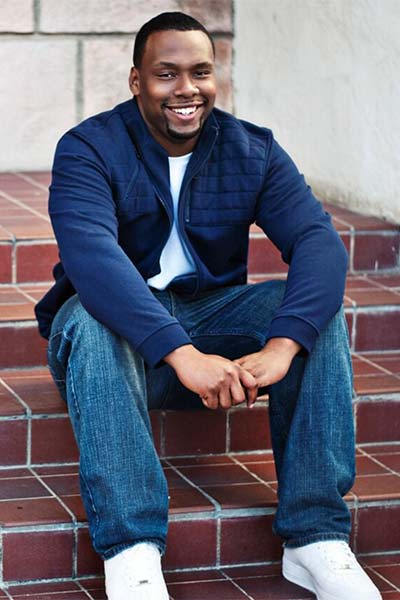Alum's genomic research maps a new future for clinical medicine
Danjuma Quarless '10 is working at the forefront of scientific development as a Ph.D. candidate and a research fellow in biomedical sciences at the University of California, San Diego. Through positions at the J. Craig Venter Institute and the Scripps Translational Science Institute, Quarless has formulated methodology for analyzing whole-genome DNA sequencing data, with clinical applications.
"I've witnessed the sequencing industry and resulting next-generation technologies scale up and expand into most every major medical system and academic institution," he says, "and to me it still feels like the community's potential to alter medicine is in its infancy."
Through his education and training, Quarless has become equipped to understand and communicate complex, interdisciplinary applications of genomic sequencing technologies to the fields of clinical medicine, academic research, and biotechnology development.
Quarless's career trajectory in biomedical research began at Whitworth, where he double majored in mathematics and bioinformatics. As an undergraduate, he was instrumental in developing Whitworth's new bioinformatics degree, which combines biology and computer science.
He was also part of an interdisciplinary research team called "CODONS," which was led by Professor of Computer Science Kent Jones and Professor of Biology Finn Pond. The team used computer-software tools to visualize and explore gene regions to better understand molecular biology and DNA functioning.
"My experience on the CODONS team sparked my initial interest in research and set me on the path to pursuing genomics research," Quarless says. "Without that opportunity, I wouldn't have learned about bioinformatics and genome sequencing so early in my academic development."
As a senior, Quarless received first place in the Scientific Poster Presentation while participating in the University of Massachusetts Medical School Summer Research Fellowship Program. He earned perfect scores for presenting his research that explored mechanisms of gene expression mutants in Chlamydomonas; his research was funded by the National Institutes of Health. He was also selected to present his research at the American Society of Cell Biology's annual conference as an undergraduate.
When he wasn't in the lab conducting research, Quarless, who hails from Tacoma, Wash., competed on Whitworth's football and track & field teams, and his junior year he was a student representative on the Associated Students of Whitworth University. He was also a member of the fourth cadre of Act Six, a leadership and scholarship initiative that equips emerging urban leaders to provide transformative leadership for the university campus and their home community. At graduation, Whitworth honored Quarless with its Distinguished Collegiate Achievement Award.
Quarless says his Whitworth experiences have become critical components of the person he is today. "The track team taught me how to believe in myself, and the science and math departments gave me a sense of intellectual freedom," he says. "And Act Six helped me develop a sense awareness of self and the community I exist within."
Whitworth's mission to provide students an education of mind and heart has also shaped Quarless' worldview. "The university's aim to equally and robustly develop both mind and heart has substantially influenced me," he says. "Most environments typically cater to just one aspect, but Whitworth showed me this does not have to be the case. This is a perspective that I value because it has greatly shaped how I see the world."
When it comes to deciding his long-term career plans, the value Quarless places on both mind and heart is creating a bit of a challenge for this scientist to solve. "I'm interested in pursuing a career in the biotechnology industry, where I can combine my proficiency and domain knowledge in biotechnology, medicine and whole-genome sequencing with the opportunity to engage with people," he says. "However, many of my most enjoyable experiences in graduate school have been the opportunities to mentor students and help develop up-and-coming scientists. This is the conundrum I'm up against."